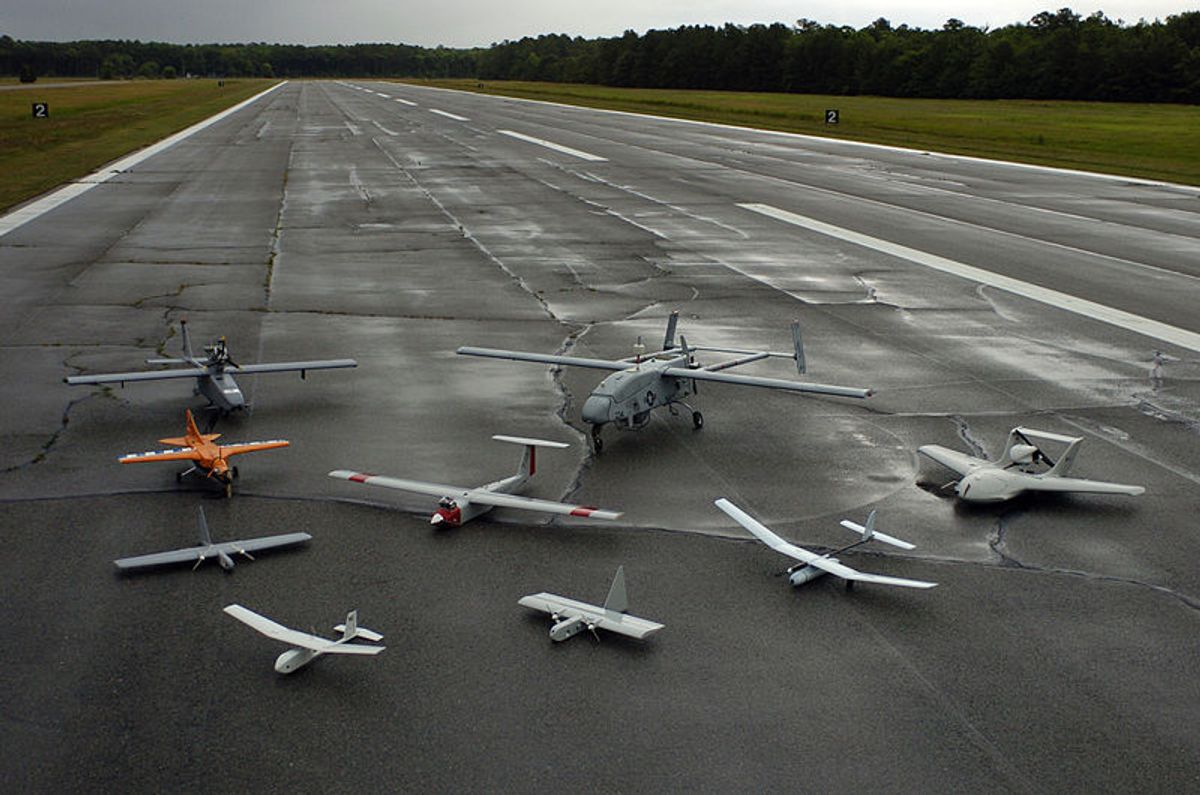Following a FOIA request from the Electronic Frontier Foundation, the Federal Aviation Administration has released an updated list of bodies, both public and private, that have applied for permission to fly surveillance drones in U.S. airspace. The FAA lists 81 entities altogether including police departments, government agencies and universities such as Cornell and Penn State.
HuffPo noted that "universities are likely to fly drones for academic and research purposes, some police departments have said they want to use drones for law enforcement, including for surveillance and crowd control."
The police departments and sheriffs offices which have applied to use drones as of October 2012 are:
- Arlington Police Department (Texas)
- Canyon County Sheriff's Office (Idaho)
- City of Houston, TX Police Department
- City of North Little Rock, AR ‐ Police Department (Arkansas)
- Clackamas County Sheriff's Office (Oregon)
- Gadsden Police Department (Alabama)
- Georgia Tech Police Department, Office of Emergency Preparedness
- Grand Forks County Sheriff's Department (North Dakota)
- King County Sheriff's Office (Washington)
- Medina County Sheriff Office (Ohio)
- Mesa County Sheriff's Office (Colorado)
- Miami‐Dade Police Department (Florida)
- Montgomery County Sheriff's Office (Texas)
- Ogden Police Department (Utah)
- Orange County Sheriff’s Office (Florida)
- Polk County Sheriff's Office (Florida)
- Seattle Police Department (Washington)
The EFF obtained the information through a FOIA lawsuit filed last October and noted in a statement that the "new list should contribute to the debate over whether using domestic drones for surveillance is consistent with the Constitution and with American values." The list's release coincides with the first anti-drone resolution (albeit largely symbolic) passing in Charlottesville, Va. The EFF noted too that "the list comes amid extensive controversy over a newly-released memo documenting the CIA’s policy on the targeted killing of American citizens" -- a memo with legal arguments that the ACLU's deputy legal director Jameel Jaffer said would fail to pass "cursory review."
As Salon noted last year, the swift proliferation of domestic drones has been boosted on Capitol Hill by a 60-representative strong, bipartisan “drone caucus,” despite the fact that many questions about the ethics and safety of their deployment remain unanswered



Shares